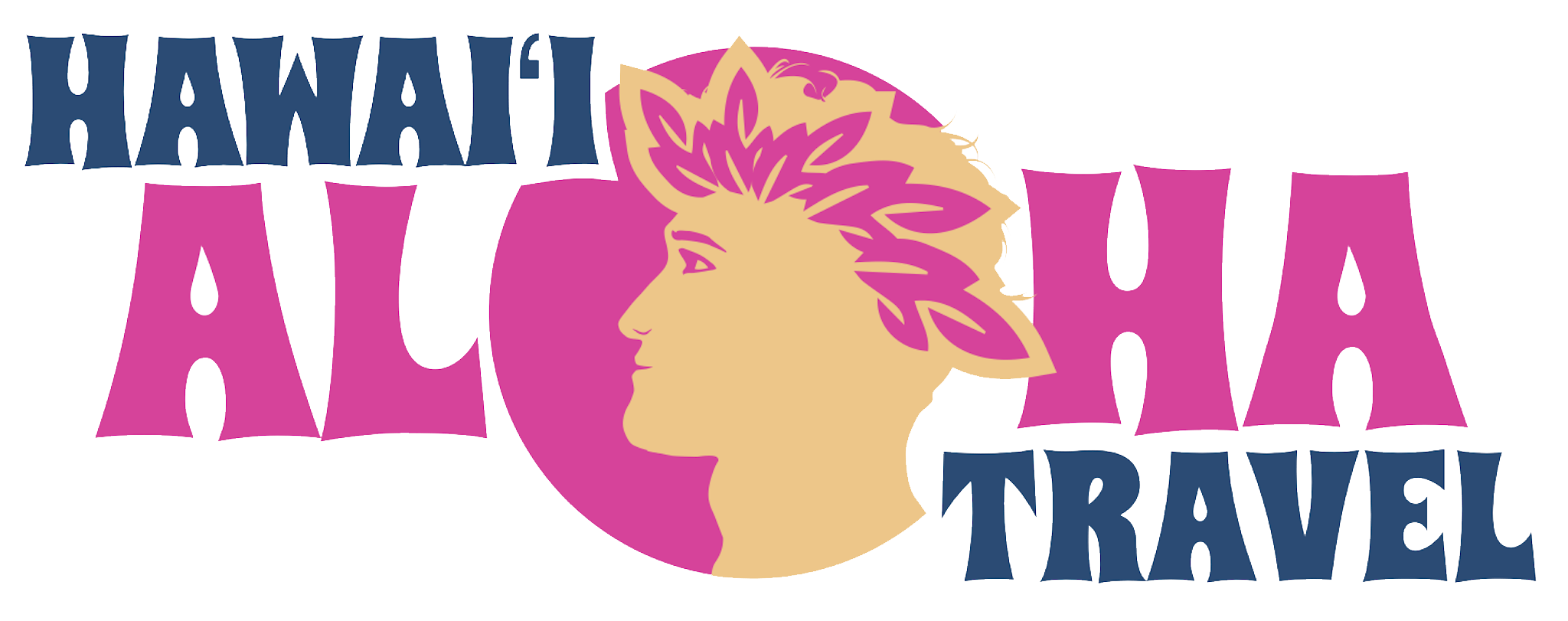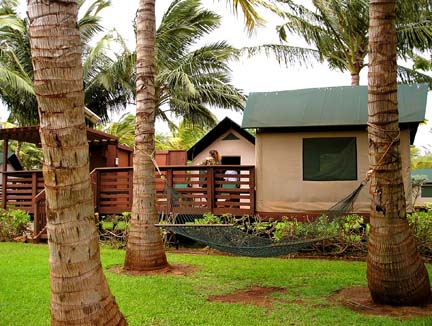Molokai, known as the “Friendly Island,” is home to the second-biggest cattle ranch in the islands and was a longtime haven for lepers before the disease was treatable. It preserves the ambiance of old-traditional Hawaii, perhaps a Hawaii of 50 years ago. With only 7,000 people on the whole isle, a couple days here and you feel like part of the family: calling everyone by first name, knowing who’s cousin to who and thoroughly enjoying the hospitality.
There are several motel/apartment complexes on the island, but I was fortunate to stay at The Molokai Ranch Lodge. The buildings are only two stories high – nothing taller than a coconut tree is allowed on the isle of Molokai – but the views overlooking the garden, pool and beyond to the surrounding Pacific Ocean are awesome. No postcard captures these sunsets. The rooms have “country decor,” (upscale country, for sure) and the dining room is only a short walk away from the lodge.
Friday and Saturday nights, the lodge rocks with music provided by locals. Bo Perez – Molokai’s answer to Tony Bennett – and his group put on a show that easily could be a Las Vegas lounge show.
Sunday mornings, Uncle Jimmy, the fifth-generation paniolo (cowboy) on the ranch, holds a worship hour in the stable area. With the barn swept clean, a white sheet covering the table where he preaches and with a saddle on either side, Uncle Jimmy dispenses his word of the day. He always stresses, “Keep it simple,” a message worth remembering. Other days he can be found running the Molokai Cowboy Connection on the ranch, offering guided horse tours, rodeos, riding fundamentals and hauling. The Molokai Rodeo, which he founded, takes place in October and has turned into a grand festival.
The ranch also offers tentalows in its Beach Village. The tents are almost like camping out, but with a few amenities to assure comfort. Tentalows are great for family vacations or for those who want to “rough it with style.” Visitors should spend time with Anakala Pilipo Solatorio, Molokai’s storyteller who can be found on the grounds. His mission is to preserve the history of the island and its natives. The garden he has created there showcases many of the indigenous plants.
Molokai is in the midst of a controversy right now; those for and against development are locked in debate. Many of the locals don’t want their island to ever change, but others say they must progress if they are going to continue to exist. Right now, the white sand beaches and the golf courses are almost empty and there is no traffic problem. In fact, there are no traffic lights on the entire island. Development will bring change, and that’s the basis of the debate. But for right now, Molokai remains a pristine paradise waiting to be discovered.




